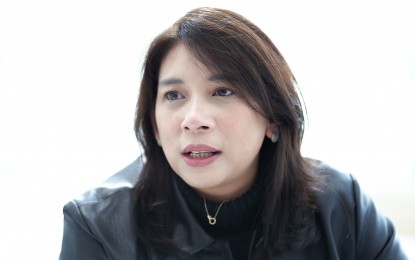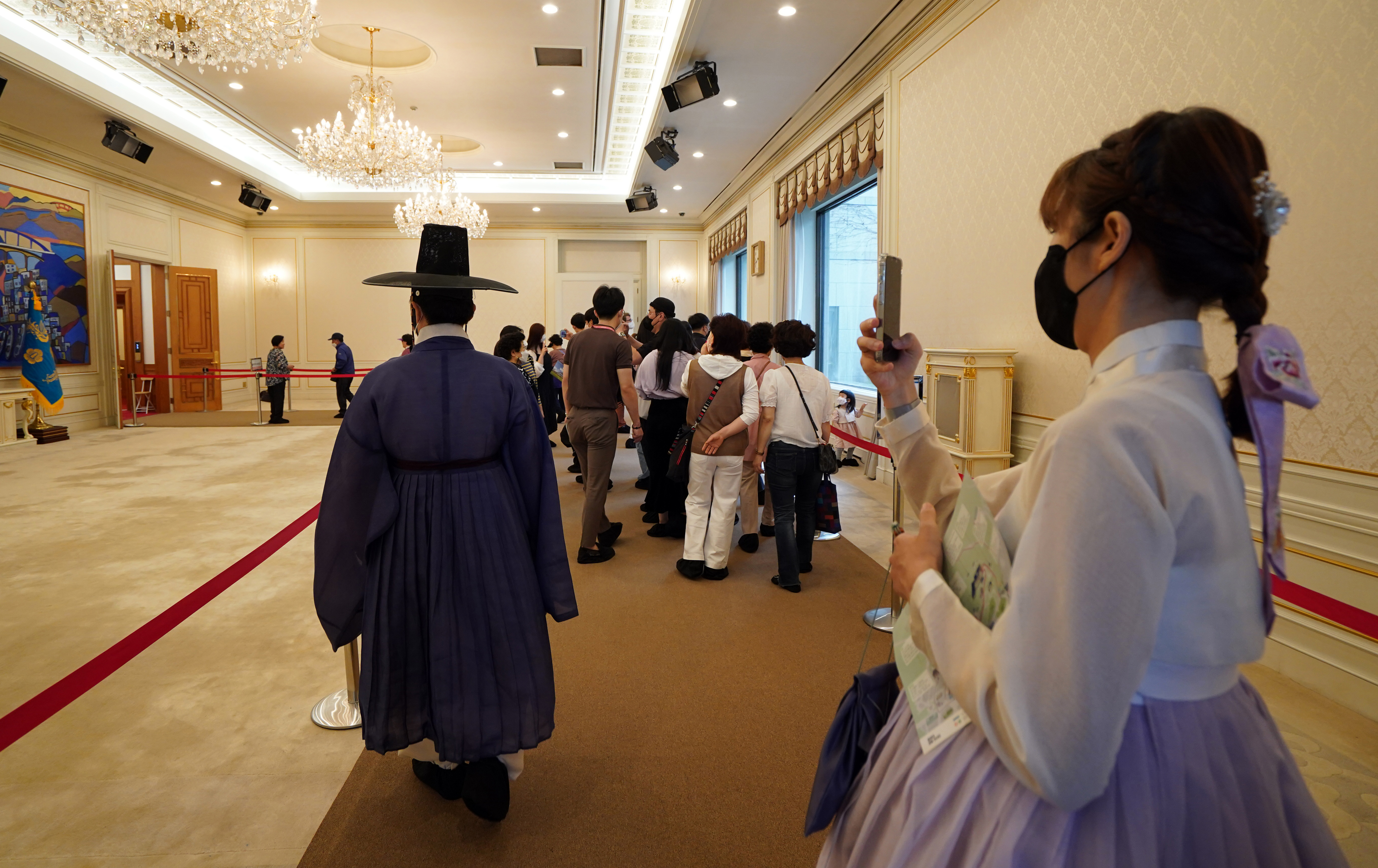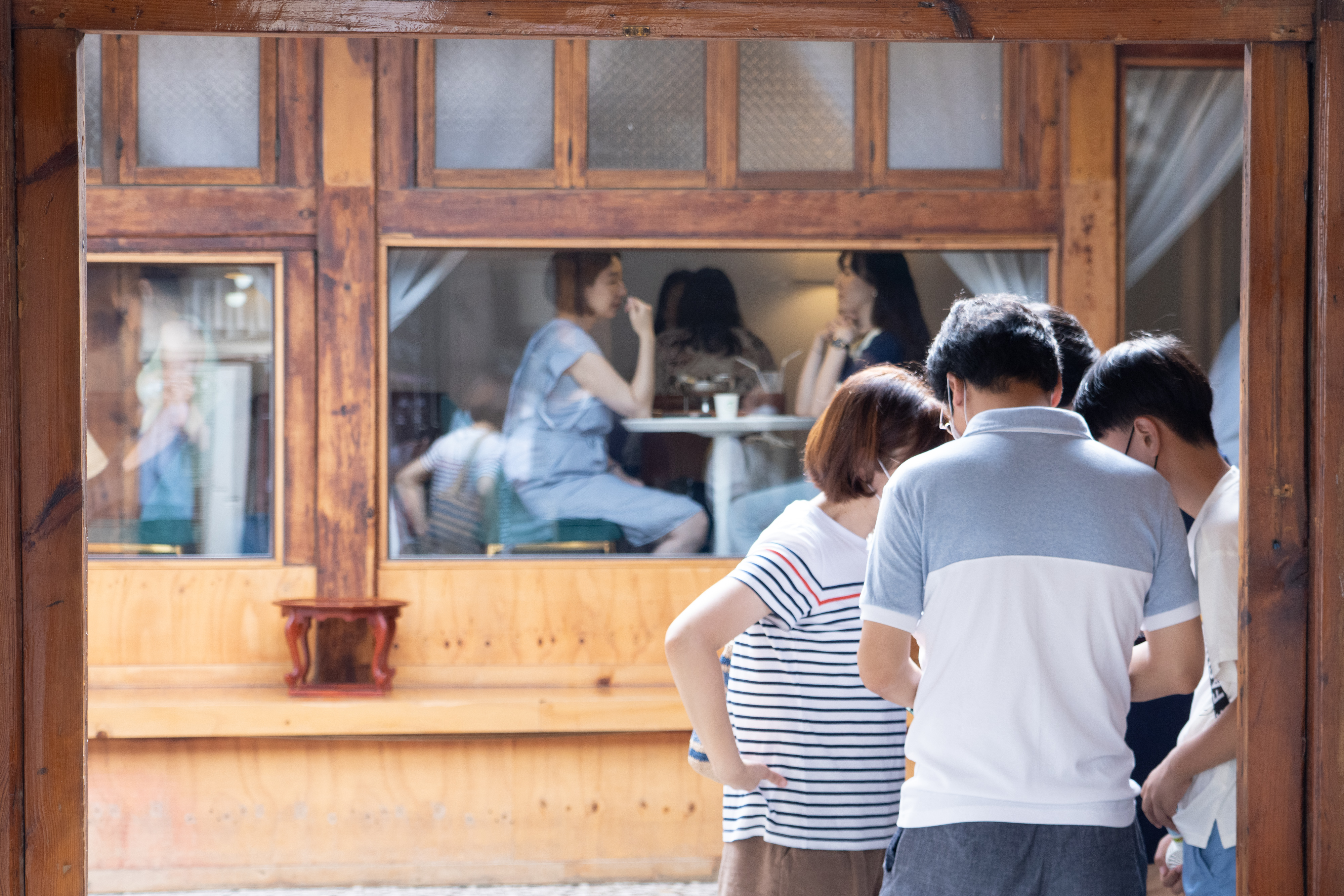
Jasmine Bacurnay-Lee in a recent interview with the PNA in Seoul, South Korea. (Photo by PENTA Press/Korean Culture and Information Service-KOCIS)
MANILA – Jasmine Bacurnay-Lee, an icon of diversity in South Korea, never dreamt of becoming a politician.
But with two children growing up at a time the concept of multiculturalism had yet to fully develop in the country, it was a job she was willing to take on if it was going to make society a little bit better for her kids.
In 2012, she was elected as a proportional representative in South Korea's National Assembly, making her the first Filipino-born lawmaker in Korea.
"Back then, I'm not even sure if I can do politics without my husband beside me, without someone trying to help me out with a new role that I'm about to take but then again what stick to me the most was the fact that my kids are growing up in this society," she told the Philippine News Agency.
"If me joining politics will make the society at least 0.01 percent better for them, then this is something that I need to do."
For four years at the parliament, Jasmine represented and amplified the voice of the growing number of non-ethnic Koreans, specifically migrant wives and overseas workers.
To date, she continues to carry the same advocacy as a civil servant, lecturer and radio host through her program "Diverse Voices".
'Trailblazer'
Jasmine moved to Korea at age 19, a year after she married her late husband Dong-ho in 1995.
She began working as a translator for documentaries and as an actress in various Korean films and programs like KBS's Love in Asia, which documented stories of multicultural families in the country.
Later on, she was tapped to become part of an institute's project called the "Making of the First Female Marriage Migrant Local Council" around the time when eligible foreigners were first allowed to vote in South Korea.
"I just joined the project just because a few of my friends were joining it. I did not even know that I'm going to be the spokesperson for the project, then suddenly Obama won. He was the first black president the US has ever had in 200 years and then people began to look at the diverse community here in Korea," she said.
This development in the West, Jasmine said, made the people think if it was even possible for Korea to have its own politician with diverse background.

Jasmine eventually got an offer to become district counselor of Gyeonggi-do and later the fifth slot for the Seoul City proportional representation, both of which she turned down.
"I don't have any background in politics and they're offering me to be a district counselor in a district that I don't live in. So I asked them this is a losing game, why do you want to put me in a situation that is a losing game, and they said, 'Yes, we know you might not be able to win but you know, it's something symbolic,'" she said.
Jasmine was resolute that the first representative of the diverse community should get the number one slot, pointing out that this would show how the community is truly valued.
"They offered me the fifth slot for the proportional representative for Seoul City but I also turned it down because I told them if it's not going to be number one, I'm not going in," she added.
"If you think that we're important enough, then you should put me in the number one slot, but they didn't and I turned it down. And then in 2011, I became one of the very first foreign government employees of the Seoul Metropolitan City," she said.
In 2012, then Korea's Saenuri party extended her the proportional representative seat at the National Assembly.
'No easy feat'
Fulfilling as it is, the journey to advancing a multicultural society was not easy.
Jasmine was catapulted into national politics only two years after her husband's tragic death in 2010.
She recalled how her two kids, aged 13 and 17 when their father passed away, also had to sacrifice a lot for having a public figure as a mom.
"Someone being called a lot of firsts in Korea isn't easy, the weight is just way too much. A lot of people might think of it as a badge of honor but you're actually not able to live a normal life like any other person because you're a public entity already," Jasmine said.
"I don't know if it's all worth it. I just wish it's all worth it because my kids had to sacrifice a lot because of having a mom who's very much, well, like in school, their teachers would actually tell them, 'you should behave because you know, your mom is this (a politician)," she added.
When she was elected, Jasmine also became a subject of discrimination, even supporters of her own party were critical of her.
There was a time when she was also dubbed "one of the most hated persons" in the country due to her ethnic background.
"(E)ven if you're following the conservatives, even if you're following the liberals or democratic people, the mere fact that you're still an outsider, it doesn't count. You'd think that (supporters) of the Conservative Party will actually, you know, be kind to you, but no, it's not even that. So I have seen a lot of hate online," she said.

Still, Jasmine pulled through thanks to the love and appreciation she got from other Koreans, especially her family and friends.
"I have received a lot of love during my first few years here --from my husband and his family. I have been taken care of by a lot of people and I have seen how Korean people can be so caring," she said.
"No amount of hate can turn my back away from all of those people who gave me the love and the care that I needed when I came here," she added.
South Korea is widely known as a homogeneous society, sharing a common language, ethnicity and culture.
Over the years, it made various efforts to create a more inclusive environment that embraces diversity.
Jasmine hopes to see Koreans and foreigners interacting more to further deepen their understanding of different cultures.
"The more that we actually see each other the more that we get the chance to talk to each other, the more it will be normal for people to see foreigners. When you look different, people will look at you in a different way but then people will get used to it," she said. (PNA)
